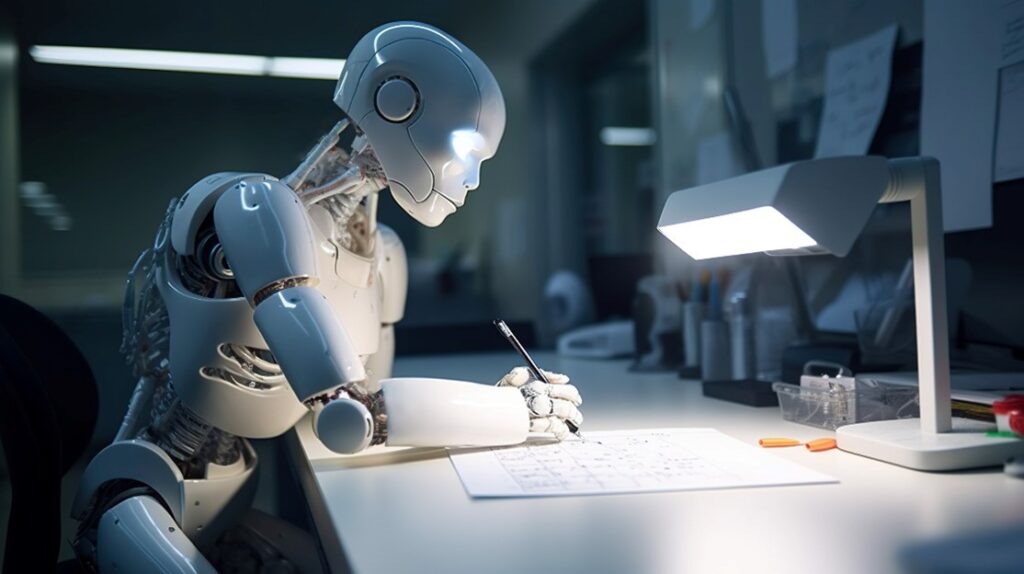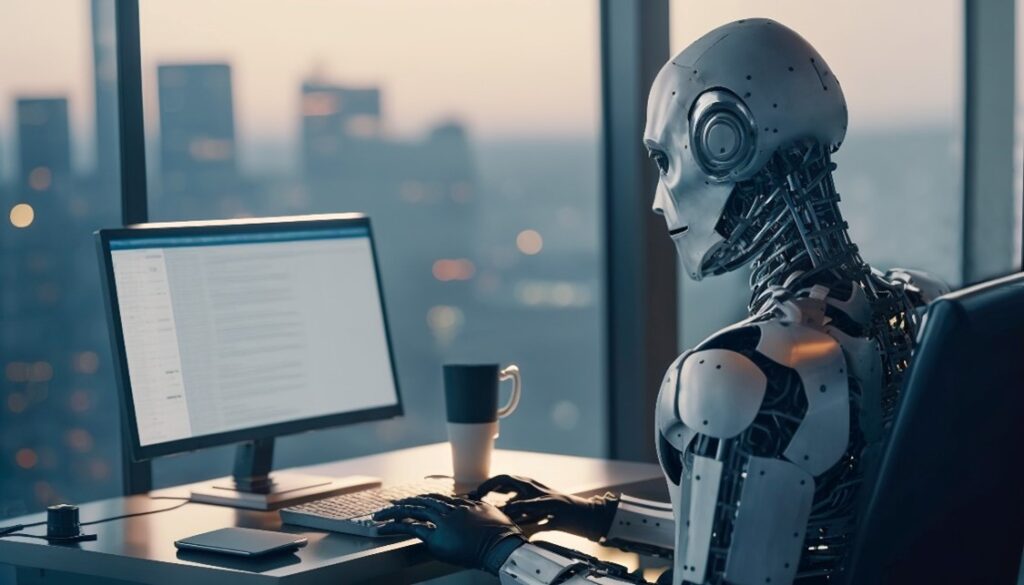
Since its introduction to the world in the 1950s, artificial intelligence (AI) has drastically altered the lives of humanity with its touch in virtually every aspect. In its latest transformation, AI has become a topic of debate and scrutiny as software programs like ChatGBT and Bard take center stage.
With AI’s relevance, popularity, and ease of use, AI has become all the talk in the job market. Christopher Nicak discusses below the impact of AI on labor markets, the challenges they pose, and the opportunities that come along.
Challenges of Artificial Intelligence on the Job Market
AI’s presence in the job market cannot be denied as many workers worry about its impact. This section will discuss the challenges that AI poses in the current job market.
Job Displacement
In everyday society, companies are constantly working on ways to increase profit which often means cutting down labor costs. In a recent report by investment bank Goldman Sachs, 300 million full-time jobs can be impacted by AI and automation.
Job displacement concerns are already a worry for workers as AI becomes more common. In areas like grocery stores and shopping malls, robots and new automated machines are already replacing the manual labor of cashiers and store associates.
With the newest evolution of AI, more workers are also feeling the pressure of being replaced. From writing essays to creating graphic images in seconds, language models like ChatGBT and Bard boast a service that is incomparable in terms of swiftness. To reduce the cost of workers, companies may think of utilizing these software programs instead of hiring writers, graphic designers, and more.
Shifts In-Demand Skills
Skills that were once deemed important and necessary may no longer be relevant in today’s society as industries shift towards automation.
Take customer service for example. In the past, restaurant industries and retail strove to provide customers with hospitable service to create a warm, welcoming atmosphere. However, with the increased number of consumers choosing speed and efficiency over hospitality, many brands are choosing to forgo the human experience of providing customer service and instead choose an automated approach.
Opportunities of Artificial Intelligence on the Job Market
While the threats to the job market from AI are apparent, economists suggest there are opportunities in which AI and workers can work harmoniously. Below are some of the ways AI can improve work environments.
Increased Efficiency
By replacing mundane, repetitive tasks with AI, workers may have the ability to work on higher-level tasks, which in turn, increases productivity.
Take human resources, for example. Instead of looking through piles of resumes for a role, recruiters can automate part of the search by having AI look through the resumes for keywords and skills. With the time saved, recruiters can focus more on the more humanistic part of the search such as interviewing the candidates.

Emergence of New Opportunities
While some industries may fall due to AI, new opportunities may also arise as a response.
This can already be seen today with several industries’ responses to ChatGBT and Bard. For publishers and teachers, works created by AI pose a large threat as submitted works may not be authentic. In response to this issue, software programs like Winston Ai and SEO.ai have been created or evolved to detect works created by AI, easing worried editors and teachers who may have struggled with identifying such work.
Additionally, in the healthcare and medicine industry, AI’s ability to analyze large amounts of data has proven to be a valuable tool. In the 2022 Innovaccer’s study of “Healthcare’s Data Readiness Crisis” conducted by Morning Consult, researchers found nearly 60% of US health executives believe AI would be effective in improving clinical outcomes. This may result in the rise of more AI software specifically designed for the healthcare and medicine industry.
In Conclusion
AI has transformed the job market and is predicted to only continue to do so. With that, companies and workers must be prepared to embrace the challenges and opportunities that follow.
So, where will AI go next? Only time will tell which industries it decides to shake up next.



